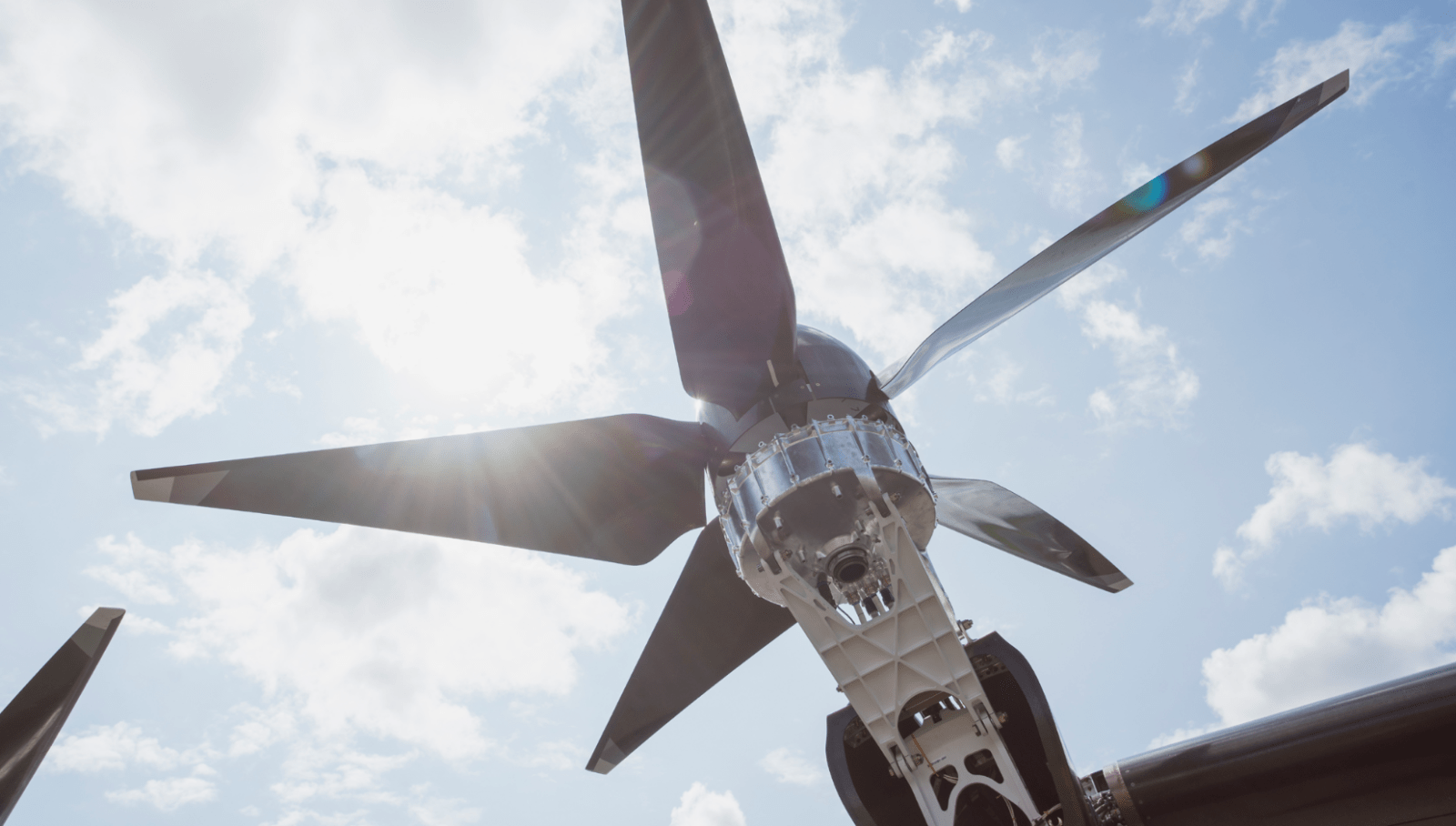
Emerging electric vertical takeoff and landing (eVTOL) aircraft used in air taxi transportation will generate billions of dollars in new activity – a major new boost to national economies that governments don’t want foreign companies to dominate. The most recent example of that defensive reflex of local aerial markets comes from the UK, where national hero Vertical Aerospace has received an additional $10.5 million in state support.
Vertical announced it has gotten $10 million in eVTOL financing from the UK government’s Aerospace Technology Institute Programme (ATI). The grant, which is specifically earmarked for further development of lighter and quieter propellers for its VX4 air taxi, brings total UK state aid to the firm to $47 million – not a bad chunk of taxpayer change for a public company traded on NASDAQ.
But despite the reliance of US rivals like Archer and Joby on private sector funding to develop their eVTOLs toward air taxi launches anticipated in 2025, Vertical is far from the only next-generation aircraft company being backed up by old school subsidies.
For starters, competitors in Europe have benefitted from direct or bank-shot aid from national and European Union government bodies. EHang has also received both financing and other forms of support from various government agencies in China, while aerial startups in Japan have gotten the occasional state yen or two.
Meantime, despite its official opposition to, and railing against foreign government funds supporting rivals to US businesses, Washington has never been shy about pumping countless millions into companies and industries it wants to help. That has been as historically true with the billions Boeing has pocketed over the decades – an investment now looking pretty iffy at best – as it’s evident in the current legislative drives to essentially ban DJI from continuing to utterly dominate American drone rivals.
The UK government’s funding of Vertical eVTOLs is therefore simply a more open and honest form of that backing of a national champion, and pro-active effort to carve out future market space for the firm as surging foreign competitors like Joby target air taxi certification in Britain.
It also comes as Vertical CEO Stephen Fitzpatrick has invested $50 million more of his personal fortune into the eVTOL startup. The support from the UK government also aims to assist Vertical’s rebound after one of its earlier generation propellers was faulted for having caused the plunge of a prototype VX4 air taxi to the tarmac during a test hover last summer.
Still, there was no doubt about the bare national economic interests motivating the UK’s renewed funding of Vertical, even as it slashes budgets for education, healthcare, and other social programs across the nation.
“This exciting sustainable propeller project is a fantastic example of our commitment to our world-leading aviation sector, supporting high-skilled, high-paid jobs across the UK while developing technologies of the future,” said UK Industry Minister Nusrat Ghani. “When government and industry collaborate like this, we help our aerospace sector soar to new heights, leading the charge towards net zero air travel by 2050.”
Mark Scully, head of ATI’s propulsion and advanced systems technology unit, also stressed the national stakes involved in backing Vertical’s eVTOL development – interest many rivals and their governments abroad also work to defend, but don’t often cop to.
“The project will see advancements in rotor technologies vital to the success of eVTOL aircraft developed here in the UK growing knowledge, skills and capability in the process,” said Scully. “Through this investment the ATI Programme is enabling the development of ultra-efficient and cross-cutting technologies in a competitive global market expected to be worth £24 billion ($30.45 billion) to the UK up to 2050, accelerating the delivery of zero-emission aircraft on our journey to Destination Zero.”
FTC: We use income earning auto affiliate links. More.



Comments